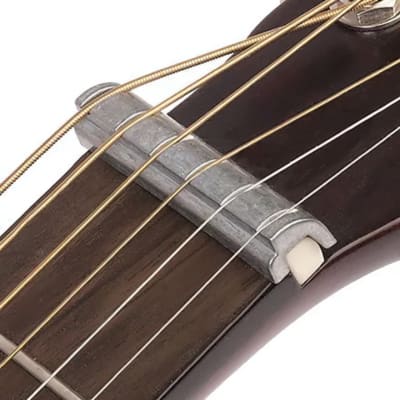
Posted on 05/02/2025 5:36:41 AM PDT by LouAvul
I used to play the guitar but broke my wrist, ruptured a tendon, other life events, and quit. I kept the gear (2 Gibsons, a Fender and a Martin, with amps.)
I'm relearning, but from a different tact. I formerly simply learned songs without realizing any principles or theory. Now I'm starting by learning scales. Am pentatonic, for starters.
Question: I know this scale works with songs written in Am, but I also read that the Am pentatonic scale also works in A major. The only difference is the root note.
Am I understanding this correctly?
...Am pentatonic, for starters....
Penicillin will cure that right up..............
Maybe it was C major, not A major?
Guitar? That’s like a horizontal violin, right?
You fiddle with its strings while ignoring the drummer.
(Jest asking for a fiend.)
Regrettably, not here. Worse, had I played the issues with my hands would be quite depressing. Still trying to work through this aging BS...
I tried to play guitar at several times in my life. I could not get the hang of it even though I was in the high school band for six years( I sucked). I took private lesson for guitar but still couldn’t get it. Today, the only thing I play is the radio.
Go to TrueFire. They have thousands of of lessons by some of the greatest guitar players alive. You can sample them for free and buy the ones you like. I have a full access pass so I have full access to all of them.
Any minor pentatonic scale is not going to be the best fit for a major “tune feel” starting on the same root. That is simply because the major pentatonic scale starting on A is going to have C sharp, and the minor pentatonic scale is going to have C natural.
That said, although most peoples’ ears will tolerate that mismatch, but it is going to have the feel of cramming a blues feel over a sing-songy feel, and will sound amareurish. In my opinion.
Something about a “relative minor”? I never learned theory, I just noodle the blues and buy amps.
This one e might be better
https://www.youtube.com/watch?v=jVzYUUHRaRw
Talks about root keys and such
If the key is A, that will be the root. The lowest tonal note major or minor. There are a LOT of good tutorials on line. Good luck with relearning. I’m off to a two night gig out of town. Arthritis is active but as long as I can, I will play. Even at 78. 😳🤔😂👍
James E Hendrix played left handed/ So, you can always learn to play with the other hand.
You can find lots of free tutors on youtube.
Dave Stewart, the British keyboard player who played with Bill Bruford (not the Eurythmics guy) wrote a couple of books on theory that were directed at pop musicians. They are very entertaining and informative.
Here’s a link to one on Amazon, and the item picture is obviously not correct.
https://www.amazon.com/Musicians-Guide-Reading-Writing-Music/dp/0879305703
6 years! Beats my record!

FREEPER - “left that other site” - teaches guitar! Send her a FReepmail...
Every major scale has a relative minor scale.
C is always related to Am. Both scales use the exact same notes. The difference is where you start and stop, which are essentially your target notes.
In every case, you can find the relative minor by going back two letters. Sometimes the relative minor will be a sharp or a flat.
Here are three simple ones that are widely used.
G major is related to Em.
D major is related to Bm.
A major is related to F#m.
The weirdness of the sharps and flats generally happens because the are no notes between B and C, or E and F. You can easily visualize that on a piano keyboard.
I need them to approach it like they're talking to a kid in grammar school. Good vid. thnx
Disclaimer: Opinions posted on Free Republic are those of the individual posters and do not necessarily represent the opinion of Free Republic or its management. All materials posted herein are protected by copyright law and the exemption for fair use of copyrighted works.